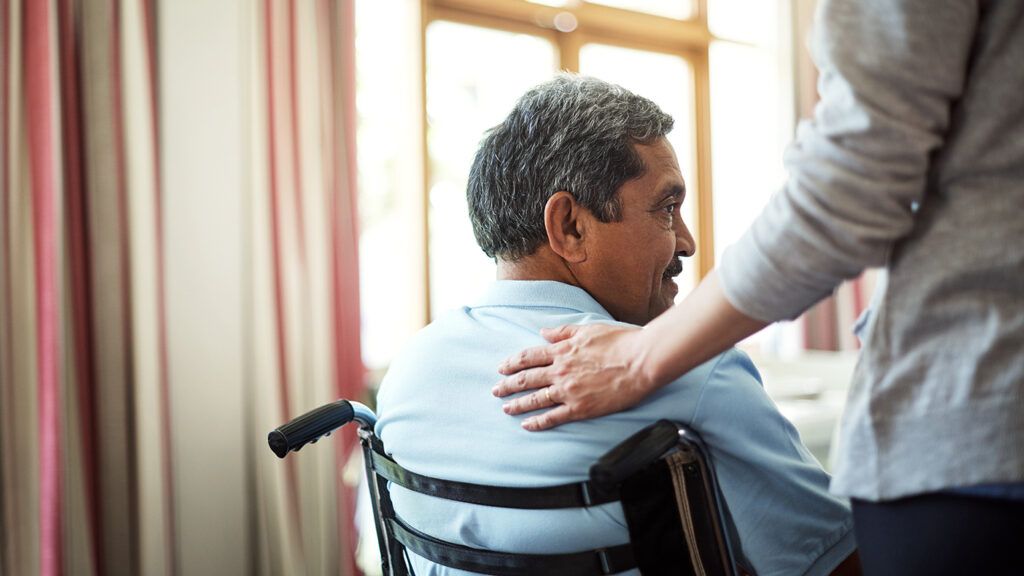There are an estimated 5.5 million military caregivers in the United States—spouses, family members and friends who care for wounded, ill or injured service members and veterans at home. They play a vital role in improving the health and quality of life of service members and veterans. Unlike Lynn Rufing, most are not trained professionals, and their caregiving takes a significant toll on their own well-being.
A study by the RAND Corporation found that, compared with civilian caregivers, military caregivers report more sleep deprivation and greater incidence of chronic illness. They have an elevated risk for depression. They have greater out-of-pocket expenses and are more likely to experience workplace problems and social isolation.
Post-9/11 caregivers—taking care of someone who served after September 11, 2001—fare worst. They tend to be younger, lacking a support network and caring for veterans who have complex medical challenges, including physical disabilities, traumatic brain injury and mental health disorders.
Most government and nongovernment programs focus on the needs of service members or veterans, not their caregivers’. Military caregivers say it’s difficult to find information about the support available to them. If you’re caring for an injured service member or veteran—or want to help someone who is—here are some good places to start:
Go to caregiverstress.com/stress-management for free resources from Home Instead Senior Care on caring for yourself while caring for others.
VA Caregiver Support offers a variety of programs, including training workshops, monthly telephone education sessions, peer mentoring and financial assistance (if eligible). Visit caregiver.va.gov to learn more. Or call 855-260-3274 to talk to a licensed professional and get help accessing services.
The AARP Military Caregiving Guide is full of tips and checklists and includes a sample caregiving plan. Go to aarp.org/caregiving and scroll down to the Veterans section of the Caregiver Resource Center to download a PDF.
The Elizabeth Dole Foundation empowers military caregivers and develops tools to assist them. Explore the Caregiver Journey Map at caregiverjourney.org. It maps out the needs and emotions military caregivers experience at different stages in their journey and marks key points where the right people, organizations and service providers can step in to help. Also through the foundation, you can search a robust resource directory and even join a private online community of caregivers at hiddenheroes.org.
For more inspiring stories, subscribe to Guideposts magazine.






